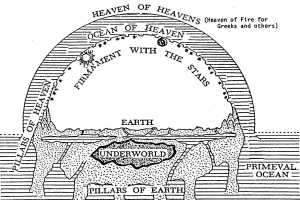Mike writes:
Last night wasn’t the best class we’ve had this fall. I wasn’t on my best game and the kids, as Susan said, “had ants in their pants.” They weren’t bad or misbehaved. We just had trouble getting engaged. That’s life. Some days you get the bear, and some days the bear gets you.
Content-wise, we backed up and covered the chapter we missed last week (Chapter 2 in the text book.)
We started by talking again about the importance of participating in the Church community, and not just sitting on the sidelines and watching. The text showed pictures of people participating in the mass.
We began a soft introduction to the concept of the sacraments. The key concept was that the sacraments are a means of receiving God’s grace. In the course of discussion, we elaborated on two concepts.
When the text mentioned “grace,” I asked the class if they knew what that was. I received blank stares. So we backed up a little and talked about love and people who loved them. We asked the students about times they felt they were receiving their parents’ love more than others. They came up with occasions like when their parents care for them, hug them, fix their favorite meal, do things with them, and so on. We described “grace” as God’s love for them, and the sacraments as an occasion for them to receive and feel God’s love.
The text emphasized the Holy Trinity, which brought up a whole additional concept foreign to most of the students. Beyond the basics of the Sign of the Cross, no one could really describe the concept of God and the Holy Trinity. We asked, “So how can God be one being but three persons?” One student very astutely answered, “Because he is GOD!” Using that as a springboard, we talked about the nature of God and the Trinity with three concepts.
1. It is beyond our abilities as humans to totally understand the full nature of God. And, yes, God can be one being and three persons because he is, well, God.
2. We told that because of that we could not provide them with a totally accurate description of the nature of the Trinity, but there two examples that may approach the truth. The first was St. Patrick’s description of the Trinity as being like a shamrock with one stem but three leaves.
3. We also asked the students to think about some of the various roles they have in life. They came up with concepts like son, daughter, grandchild, friend, student, soccer player, Scout, band member and others. They are one person, but they have various identities depending on what they may be doing or who they are with. We compared this to God. When we think of God as the Creator, that is the Father. When we think of God as the Savior, that is Jesus, the son. And when we think of God as the source of continuing love and grace, that is God the Holy Spirit.
We finished off with a five minute “quiz bowl,” to reinforce some of the lessons. For whatever it is worth, the students’ retention is really excellent. Something is sticking. There is hope! Back next week.
